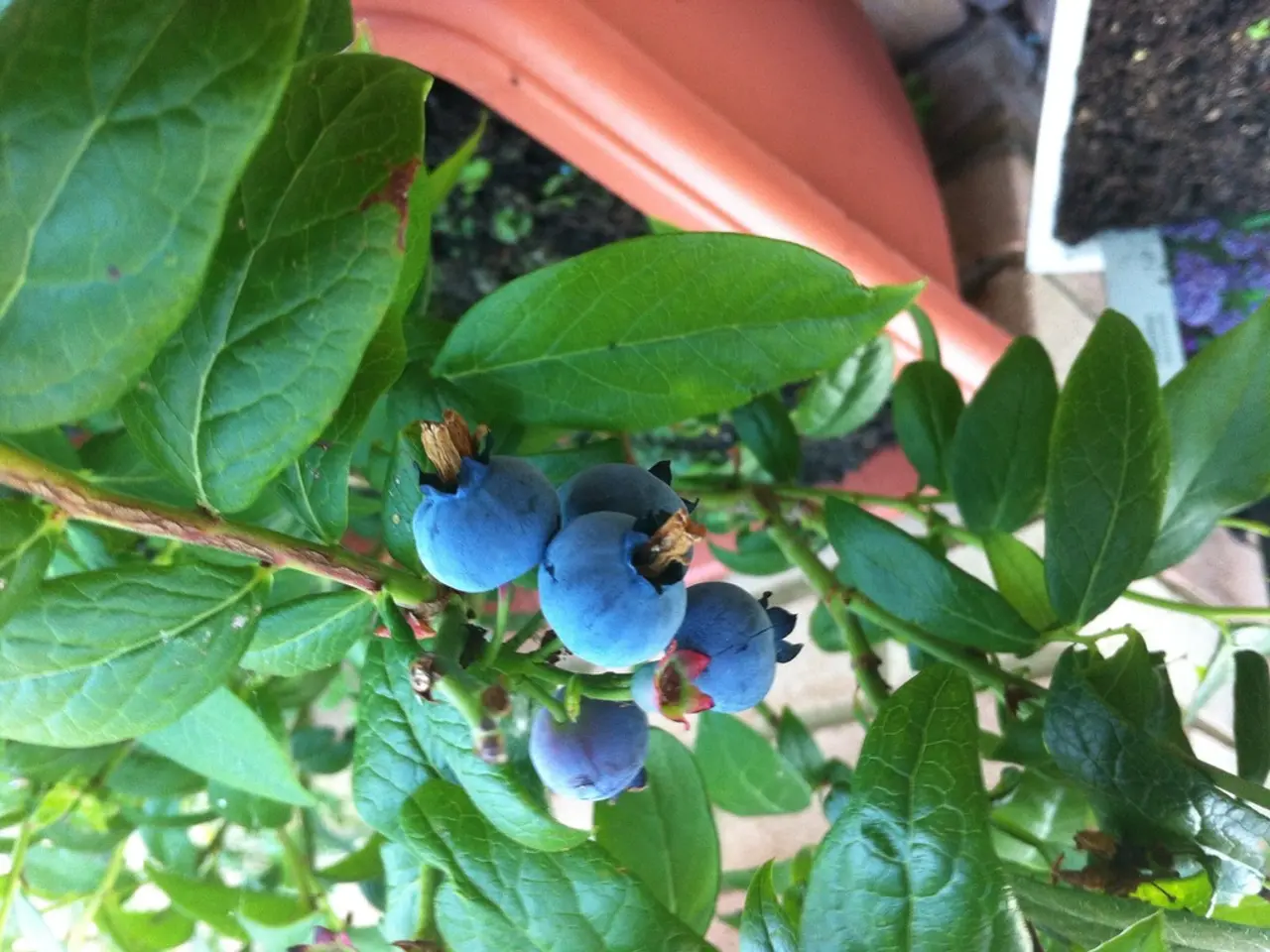Boosting soil acidity in a distinctive manner: Rapid growth of blueberries observed
In the world of gardening, maintaining the right soil pH is crucial for the growth of various plants. This is especially true for blueberries, which thrive in highly acidic soil with a pH level between 3.5 and 4.5. Here's a comprehensive guide on how to effectively and safely acidify soil for blueberry growth.
For long-term and sustainable results, it's recommended to primarily use proven methods such as applying elemental sulfur, iron sulfate, and mulching with acidic organic materials like pine needles. These approaches lower soil pH gradually and sustainably without damaging plant roots.
- Elemental Sulfur: Soil bacteria convert sulfur to sulfuric acid slowly, resulting in a gradual but lasting decrease in pH ideal for blueberry plants. Application rates depend on current soil pH, soil texture, and buffering capacity.
- Iron Sulfate: Provides acidity faster than elemental sulfur but is more expensive and less commonly used for large areas.
- Mulching with Pine Needles or Oak Leaves: These acidic organic mulches slowly acidify the soil as they decompose, improving soil structure and nutrient retention beneficially.
- Adding Organic Matter such as Peat Moss or Cottonseed Meal: These naturally acidify soils and improve fertility over time.
While there are other methods available, it's important to approach them with caution.
- Oxalic Acid: Though naturally present in some plants, oxalic acid is highly concentrated and can be toxic to plants and soil microbes if applied directly. It's more commonly used in very controlled laboratory or cleaning contexts rather than garden soil.
- Lemon Acid (Citric Acid): Citric acid lowers pH temporarily by acidifying the soil solution but tends to be short-lived because it is rapidly broken down by soil microbes. It can be used in small amounts to slightly lower pH for quick effects but is not suitable for long-term soil acidification for blueberries due to its transient nature.
- Electrolyte Solutions: This term is not a standard soil amendment for acidification. Electrolyte drinks or salts can alter soil chemistry, often raising salinity and potentially harming plants; they do not provide a controlled acidifying effect and are not recommended.
- Vinegar (Acetic Acid): Vinegar is a strong acid that acidifies soil quickly but only superficially and temporarily; it can damage plant roots if not diluted properly. It might be used for small-scale, short-term acidification but should be applied cautiously and never in high concentration near blueberry roots.
- Cucumber Brine: This is leftover vinegar and salt solution used for pickling. Because of salt content, it can harm soil microbes and plants by increasing salinity. It is not a safe or effective long-term acidifier.
When acidifying the soil, it's essential to test the soil pH before application and monitor pH regularly to prevent plant stress. Combine acidifying methods with good soil drainage and organic matter to support healthy root environments. Use diluted solutions if applying quick-acting acids (vinegar, citric acid), and apply away from plant stems and roots. Prefer long-term sulfur amendments for sustainable results.
In summary, for blueberries, the best practice is to focus on elemental sulfur, iron sulfate, and acidic organic mulches while avoiding risky short-term acidifiers like oxalic acid, undiluted vinegar, or saline brine solutions. These provide controlled, safe, and lasting soil acidification tailored to blueberries’ specific needs.




